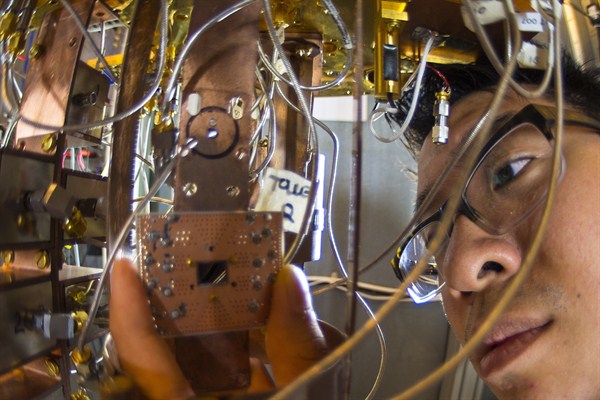Last month, China successfully launched the world’s first quantum satellite, which is designed to establish “hack-proof” communications between space and the ground. The launch puts China ahead of its rivals in the quest to develop quantum technology, which has major implications for security and defense policy. In an email interview, Taylor Owen, an assistant professor of digital media and global affairs at the University of British Columbia and the author of “Disruptive Power: The Crisis of the State in the Digital Age,” and Robert Gorwa, a graduate student at the Oxford Internet Institute and a researcher at the University of British Columbia’s Liu Institute for Global Issues, discuss quantum technology.
WPR: What advantages does quantum technology offer satellites and computing, and to what extent does the technology still need to be developed before its benefits can be fully realized?
Taylor Owen and Robert Gorwa: First, it is important to state from the onset that beyond both relying on quantum mechanical phenomena, there are few similarities between a quantum computer and a quantum satellite project. However, although they’re totally different technologies, if viewed in a strategic context, they are similar in that the effective implementation of either could foment a significant potential advantage in cyberspace. Quantum computing could potentially be used in an offensive capability, by massively increasing computational power, or by breaking certain types of encryption. Quantum satellites, and other quantum communications projects, could provide a defensive mechanism through alternative encryption methods that make communications more secure against interception.

